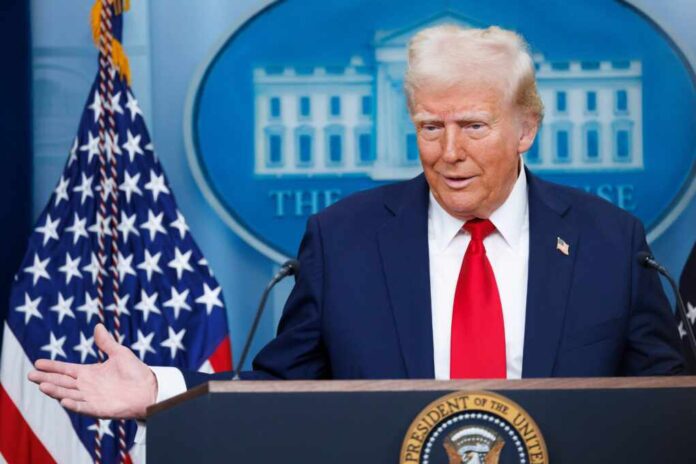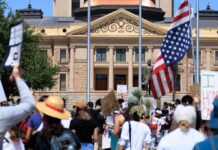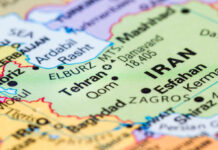
President Trump welcomes 49 Afrikaner refugees to the United States after accusing South Africa of committing “genocide” against its white farming minority.
At a Glance
- First group of 49 Afrikaner refugees from South Africa arrived at Dulles International Airport under a new expedited refugee program
- Trump signed an executive order freezing aid to South Africa over its Expropriation Act allowing seizure of agricultural property without compensation
- President Trump described violence against white South African farmers as “genocide” but emphasized his concern transcends racial considerations
- South Africa’s government denies allegations of land confiscation without compensation and disputes claims of white genocide
- Secretary of State Marco Rubio and adviser Elon Musk have publicly supported the refugee program for Afrikaners
First Afrikaner Refugees Arrive on American Soil
The first group of 49 white South African refugees touched down at Dulles International Airport this week under a new Trump administration policy granting expedited refugee status to Afrikaners. The arrival marks the implementation of President Trump’s executive order establishing a “rapid pathway” to citizenship for South African farmers who, according to the administration, face persecution in their home country. Deputy Secretary of State Christopher Landau personally welcomed the group at the airport, acknowledging the struggles they’ve faced in South Africa.
The Trump administration’s decision comes in direct response to South Africa’s Expropriation Act of 2024, which allows for the seizure of agricultural property without compensation. This law was enacted following government studies showing that white South Africans, who make up approximately 7% of the population, control roughly 75% of farms in the country. Several thousand South Africans have already expressed interest in the program, with more flights expected in the coming weeks.
🇺🇸 TRUMP ADMIN BRINGS 49 WHITE SOUTH AFRICANS TO U.S.—SPARKS DEBATE OVER WHO GETS A FRESH START
A group of 49 white South African farmers just arrived in Virginia as refugees—fast-tracked by a Trump executive order claiming they’re victims of racial discrimination.
Trump’s team… https://t.co/iM5xGCfV57 pic.twitter.com/sQfyjiMoAt
— Mario Nawfal (@MarioNawfal) May 12, 2025
Trump Cites “Genocide” Against White Farmers
During a White House briefing, President Trump made his most forceful statement yet regarding the situation in South Africa, describing the violence against white farmers as tantamount to genocide. “It is a genocide that is taking place that you people don’t want to write about,” Trump told reporters. The president’s comments have intensified an already contentious debate about the treatment of the white minority in post-apartheid South Africa, where complex issues of land ownership and historical inequities continue to divide the nation.
“It’s a terrible thing that’s taking place, and farmers are being killed. They happen to be white, but whether they are white or black makes no difference to me.”, said President Trump.
The South African government has vigorously denied Trump’s characterization, with its foreign ministry criticizing the U.S. resettlement program as politically motivated. South African officials point to a recent court ruling which determined that claims of white genocide are “imagined” rather than real. Police figures show 44 murders on farms in 2024, though advocates for Afrikaner farmers dispute these statistics and claim many violent incidents go unreported or are not properly classified.
Administration Defends Refugee Policy Amid Controversy
The White House has faced criticism over its decision to create a special pathway for white South Africans while maintaining restrictive policies for refugees from other nations. White House deputy chief of staff Stephen Miller defended the program, stating that the situation in South Africa “fits the textbook definition of why the refugee program was created.” Some humanitarian organizations and religious groups, including the Episcopal Church, have refused to assist in resettling the Afrikaners, citing concerns over preferential treatment based on race.
“What’s happening in South Africa fits the textbook definition of why the refugee program was created. This is persecution based on a protected characteristic, in this case, race.”, said Stephen Miller.
Secretary of State Marco Rubio has been outspoken in supporting the administration’s position, declaring that “Afrikaners fleeing persecution are welcome in the United States.” The U.S. Embassy in South Africa has clarified that the program is technically open to any South Africans who can prove past persecution or fear of future persecution, though current applicants are predominantly Afrikaners. Trump has also suggested the U.S. might skip the upcoming G20 summit in Johannesburg unless South Africa addresses these concerns.
South African Land Distribution Remains Contentious
The core issue fueling this diplomatic tension is land distribution in South Africa. White South Africans own approximately 70% of commercial farmland despite comprising just 7% of the population, a disparity rooted in the country’s colonial and apartheid history. The South African government has defended its land reform efforts as necessary to address historical inequities, while critics, including South African-born Trump ally Elon Musk, have characterized the Expropriation Act as “openly racist” in its implementation.
“I don’t care who they are. I don’t care about their race, their color. I don’t care about their height, their weight. I don’t care about anything. I just know that what’s happening is terrible. I have people that live in South Africa. They say it’s a terrible situation taking place, so we’ve essentially extended citizenship to those people to escape from that violence and come here.”, said President Donald Trump.
As the program moves forward, several thousand South Africans have reportedly expressed interest in relocating to the United States. The Trump administration has indicated it will continue processing applications despite international criticism, with the president emphasizing that his primary concern is protecting those facing violence, regardless of race or background. This marks one of the most significant refugee policy shifts of Trump’s presidency and signals a new approach to South African relations.

























